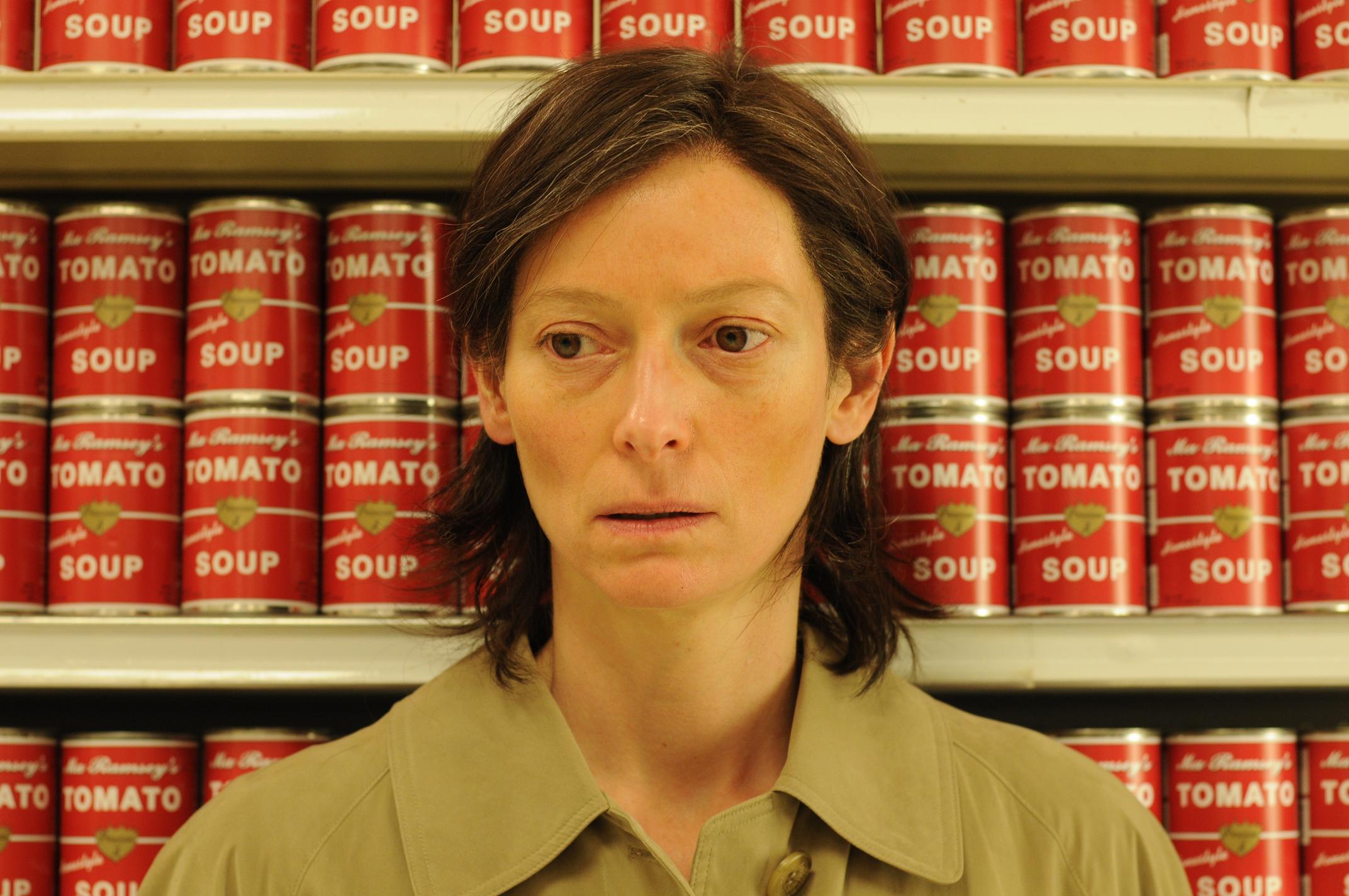It’s inevitable — whenever a seemingly preventable tragedy occurs, there’s public outcry to the tune of “How could this happen?” (Exhibit A: recent events in Ohio.) But after the school shooting in We Need to Talk About Kevin, the more apt question is “How could this not happen?”
Lynne Ramsay (2002’s Morvern Callar) — directing from the script she co-adapted from Lionel Shriver’s novel — uses near-subliminal techniques to stir up atmospheric unease from the very start, with layered sound design and a significant, symbolic use of the color red. While other Columbine-inspired films, including Elephant and Zero Day (both 2003), have focused on their adolescent characters, Kevin revolves almost entirely around Eva Khatchadourian (a potent Tilda Swinton) — grief-stricken, guilt-riddled mother of a very bad seed (played as a teen by Ezra Miller, at age seven-ish by Jasper Newell, and as a baby by Rocky Duer).
The film slides back and forth in time, allowing the tension to build even though we know how the story will end, since it’s where the movie starts: with Eva, alone in a crappy little house, working a crappy little job, moving through life with the knowledge that just about everyone in the world hates her guts.
Motive was a hot topic post-Columbine. Both of the Colorado killers kept rage-filled diaries, but their home life has remained largely enigmatic. Dylan Klebold’s mother penned an essay for O magazine in 2009, titled “I Will Never Know Why.” It describes her shock upon realizing that her beloved son was involved in the massacre, and her enduring regret at not doing more to prevent it. She also touches on her experiences after the event: “I was widely viewed as a perpetrator or at least an accomplice since I was the person who had raised a ‘monster.'”
Eva shares these feelings of shock and guilt, and experiences, as Susan Klebold describes, constant public shame. She can’t leave her house without experiencing humiliation, thanks to the vandals who’ve splashed her porch and car with crimson paint. (The grim, practiced way she takes a sander to her sullied front door suggests it’s not an infrequent occurrence.) Forget about blending in when everybody knows your face — or your last name is as memorable as “Khatchadourian.”
But Eva’s guilt runs even deeper. Kevin‘s flashback scenes are stuffed with rock-solid evidence that her kid was born a complete psycho, and that Eva is fully aware of it.
What’s worse, she suspects it’s her own fault. She didn’t even want a baby in the first place, really; husband Franklin (played with gee-whiz oblivion by John C. Reilly) passive-aggresses her into domesticity. “Stop resisting,” the doctor urges as she’s giving birth, but it seems resisting would’ve saved her a lot of anguish. The baby screams all day (Eva’s only relief: parking the stroller at a construction site, where the sounds of a jackhammer drown out his cries); later, when the family moves to the ‘burbs, he grows into a scowling child who spends every waking minute terrorizing his mother. Even worse, he adopts a fake-sweet personality whenever Franklin is around.
Frustrated, Eva takes him to the doctor, who concludes, “There’s nothing wrong with him.” So, is Eva what’s wrong with him? Later, when she’s scouring high school-aged Kevin’s room, she finds no Columbine-style diaries, only a CD-ROM marked “I Love You.” It’s the only time love and Kevin are presented as part of the same thought — and, naturally, the “I Love You” disc actually contains a crippling computer virus.
Kevin is very nearly a full-blown horror movie, and the demon-seed stuff does get a bit excessive. But it’s hard to determine if those scenes are “real life” or simply the way Eva remembers them, since Kevin is so tightly aligned with Eva’s point of view. Though she’s miserable in the flashbacks, the post-tragedy scenes are even thicker with terror. The film’s most unsettling sequence unfolds on Halloween, horror’s favorite holiday; Eva drives past a mob of costumed trick-or-treaters as Buddy Holly’s “Everyday” (one of several inspired music choices) chimes on the soundtrack. Masked faces are turn to stare — accusingly? Coincidentally? Do they even know she’s Kevin’s mother? — with nightmarish intensity heightened by slow motion.
And indeed, “Everyday” Eva deals with accepting her fate; the film is sympathetic to her even while suggesting that she may actually be responsible. When a woman walks up to her on the street and punches her in the face, screaming “I hope you rot in hell!”, Eva brushes off help from a stunned bystander: “It’s OK. It was my fault.” Whether or not Eva will forgive her son is uncertain. Clearly she’ll never forgive herself.
We Need to Talk About Kevin opens Fri/2 in Bay Area theaters.

